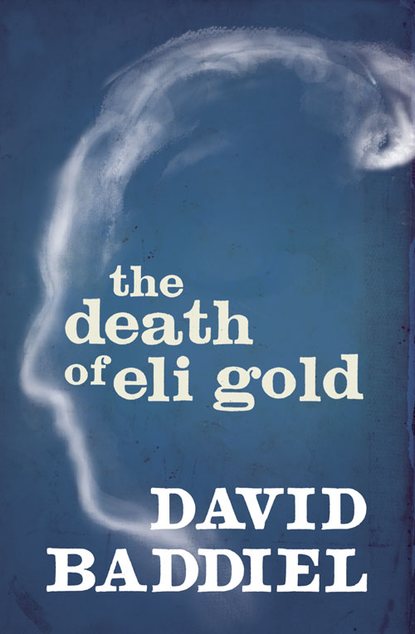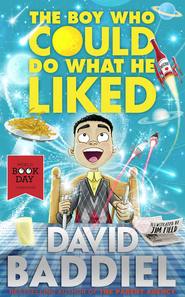По всем вопросам обращайтесь на: info@litportal.ru
(©) 2003-2024.
✖
The Death of Eli Gold
Автор
Год написания книги
2018
Настройки чтения
Размер шрифта
Высота строк
Поля
Joe Hillier looks up, but, as Violet is behind him, he simply scans the room, shrugs his shoulders, and puts it down – in a rather matter-of-fact way – to voices in his head.
‘Joe!’ She taps him on the shoulder. He tries to look round, but the turning circle of his neck fails him, and he has to shift his body sideways to see her.
‘What is it?’
‘Would you mind if I had the paper?’
He looks at it, folded now on his lap. ‘This one?’
‘Yes …’
‘Well, I haven’t finished reading it yet.’
He stares at her, with all the truculence that old men reserve for old women.
‘OK. Can I have it when you have?’
‘Well, I think Frank …’ Joe raises an arthritic, yellowing finger towards another resident, a man wearing thick-lens glasses rimmed with heavy, 1960s black frames whom Violet has never spoken to ‘… was next in the queue for the Telegraph.’
‘Well, fine. Just whenever everyone’s finished with it, I’d like the page with that photograph.’
Violet’s natural instinct is diplomatic, and she had been smiling, but her voice, raised by the betrayal within it of a tiny level of frustration, causes a number of men and women in the room – at least, the ones with their hearing aids on – to turn round. Violet had never raised her voice before in three years at Redcliffe House, and it is clear from the uncertainty on some of the residents’ faces that they have no idea who had been speaking.
‘Have it? You mean, keep it?’ says the man who Joe had referred to as Frank.
‘I don’t think that’s House policy, is it?’
He takes his glasses off, in the manner of a board member at an important meeting, dealing with a thorny issue someone else has brought up. Behind them, red threads creep in from all sides of his eyes towards the cataract-white centres, like blood dropped in milk. With a sinking heart, Violet realizes that the two men are going to use her request as a means of pretending they still exist in the world of the living.
‘Absolutely correct, Frank,’ says Joe. ‘The rules state that all newspapers and magazines put out in the communal area for use of the residents must be left in the communal area at the end of the day for recycling.’
‘Oh, for crying out loud Joe Hillier,’ says Norma Miller, one of the more lively residents. She is Welsh – so always addresses people by both their names – and her hair is dyed shockingly blonde for a woman in her eighties. Her face is so engraved with lines it looks, Violet always thinks, like crazy paving: she has smoked her whole life, and is furious that she is not allowed to continue to do so inside Redcliffe House. ‘Don’t be such a stupid old stickler. Let her have the bloody paper if she wants it.’
‘Why do you want it, anyway?’
Violet turns; it is Pat Cadogan who had spoken, her eyes squinting with suspicion. Violet had dreaded someone asking this. She had hoped the newspaper would just be handed over, and she could squirrel it away to her room, but now, as always, events had run out of control. It was why she never spoke up; why she chose, often, not to say anything at all.
‘Oh, no reason, really. I know – I used to know …’ she doesn’t want to say his name; it would just lead further away from the straight line back to her room, ‘… him. The man in the photograph. A long time ago.’
Joe Hillier picks up the paper and shakes the pages out. ‘Barack Obama?’
‘No! Him. On the facing page.’
Joe scans the print. A piece about the arts, about books – worse, a writer of fiction: she could hear in the snort of breath through his solidly packed nostrils that this was an article that he, a man from the north of England, would normally disregard.
‘Eli … Gold. Yes, I’ve heard of him.’
‘Didn’t he kill one of his wives?’ says Frank.
‘No!’ says Violet. ‘It was a suicide pact that went wrong.’
Joe Hillier frowns, though it is unclear whether this is from disbelief, or because the idea of disposing of one’s wife in that way – Joe had lived for fifty-two years with a woman dedicated to making his life a disappointment – suddenly occurs to him as brilliant.
‘Gold …’ says Pat, menacingly; she looks over Joe’s shoulder at the picture. ‘Is he a relative of yours?’
Violet seizes on it. ‘Yes! Yes, he is. A distant … cousin.’
Pat stares at her, her tiny eyes – had they shrunk with age? Weren’t eyes the only part of the body that didn’t do that? – narrowed to slits. Don’t you lie to me is so clearly etched into her expression, it seems to be written on a comic-book balloon attached to her mouth. Violet turns away: she does not want to lie – she is naturally no good at it – but it is so much easier than the truth, which in this case, she thinks, would not be believed. It seems so unlikely, really, even to her, that she, as she sees herself in the big gilt-edge mirror over the living-room fireplace, an ancient husk of femininity, could ever have been loved by him, as he is pictured in the newspaper, so pert and sharp-suited and – a word the young people used to use: or did they still? – cool. She may even be put down as showing the first signs of senility. And even if it were believed, in the unlikely event that someone were to check the information and discover its truth, she knows she would only emerge from her cocoon of anonymity as an object of resentment. It was impossible for such worlds to meet; the one in the paper, even though it was past and dead – the world of fame, and worldliness, and glamour – and this one, Redcliffe House, this apex of mundanity. It was like trying to push together the wrong ends of two magnets; she would be held responsible for forcing such a bad conjunction.
‘All right, then,’ says Joe, shrugging. ‘I’ll ask one of the nurses to hold onto that page for you at the end of the day …’
‘Thank you, Joe. That’s very good of you.’
But of course he forgets, and when she asks the next day all the newspapers have already been sent off for recycling.
* * *
Where were all these women in winter? thinks Harvey, viewing the teeming Manhattan sidewalks from the back windows of another cab. It is not the first time he has had the thought: it seems it comes to him earlier every year, his own deeply dysfunctional first cuckoo of spring. He knows the argument: it’s just the clothes, with their dizzying gaps between belt and top and neck and bra strap, giving onto the soft planes of caramelizing flesh. But that makes no sense to Harvey, because, looking round, he knows for certain that the women who snag his gaze in these clothes would snag his gaze were they dressed head to foot in straw.
Fifth Avenue, the boulevard his driver has chosen to take in order to bring him back from Mount Sinai to the Sangster, is full of shoppers. Harvey is glad he isn’t driving, as looking out onto the fecund streets at this time of year from a vantage point above a steering wheel – whether in London or New York or anywhere – is lethal. Not lethal as in ‘God, man, that’s lethal’, said, say, with a wipe across the mouth on putting back down on the bar a high-alcohol cocktail. Lethal as in looking so hard and so long back over his shoulder, at this woman or that woman or this woman or that woman or this woman or that woman, in order to check out whether her face and front fulfils or undoes the promise of her hair and back, that Harvey drives headlong into the truck/car/bus/building in front. Many is the time, in London, from April to September, that Harvey has had to apply the brake split seconds faster than his leaping heart in order to prevent an imminent body flight through the smeary glass of his Toyota Avensis wind-screen. And many is also the time – about one in four, Harvey reckons – that a clear sight of said woman would, he thinks, have been just about worth, if not actual death, at least being cut screaming from the molten Toyota/truck conjunction with oxyacetylene.
This is a somewhat contradictory thought for Harvey Gold – which is OK, contradiction being his air, his water – seeing as he knows that much of his trouble comes from this type of looking. This looking isn’t pleasure, it isn’t contemplation: like the rest of Harvey’s stuff, it’s symptomatic, pathological, obsessive compulsive. It is desire rendered only as pain, unrequited even in Harvey’s imagination. He is not interested in what he knows he can never have. He is only troubled by it.
There are male friends he has spoken to about this issue who love the streets at this time, including one who, despite having three cars and more than enough money for taxis, always, on travelling into central London in spring and summer, will get the bus, in order to sit on the top deck and leer. Harvey does not understand his friend. Harvey does not understand the idea of the enjoyment of looking. Very early on in their time together, Therapist 4, the Kleinian, had suggested the possibility that Harvey could contain the anxiety looking at women on the street caused him by comparing them to beautiful paintings.
‘You can look at beautiful paintings without being overcome with anxiety – you can in fact look at beautiful paintings and enjoy them …’ she had said, with an air of this’ll sort him out, ‘why don’t you try and think of these women as beautiful paintings?’
‘Because,’ he had replied instantly – always at his quickest when pressed on his own neuroses: the nearest Harvey comes to his father’s speed of mind is his ability always to have an answer for why this or that suggestion will not cure him – ‘when I see a beautiful painting, I have no desire to touch or kiss or lick or fuck the canvas.’
Harvey remembers the face of Therapist 4 at this moment. She was his first woman – chosen deliberately, in the hope that that would be the key – and sixty-three, also a deliberate choice, and had had a minor stroke that caused one side of her mouth to fall faintly out of symmetry with the other. Physiotherapy had got her facial muscles back to about 80 per cent of their pre-stroke strength, but her lips still had something of the look of a falling graph and, in response to this particular remark, seemed to fall just a millidegree further. Harvey took this to mean that he had stumped her, and felt, despite the fact that he was paying her to cure him and therefore not to be stumped, a small thrill of triumph.
‘Are you OK, sir?’ says the taxi driver, a Sikh. Harvey looks away from the window; again he has the impulse to delineate the thousand ways in which he is not. But he says:
‘Fine. Yes. Why do you ask?’
‘You were sighing?’ His accent is Bengali, but the intonation, going up at the end of the sentence to make the observation a question, is American.
Harvey looks at the ID card in the right-hand corner of the glass partition that separates passenger from driver: the words Jasvant Kirtia Singh and a face, most of it covered by turban and beard.
‘Sorry, I didn’t realize …’
‘It is someone you’re seeing at the hospital?’
Harvey looks at Jasvant Kirtia Singh’s eyes in the rear-view mirror. Animated from their I’m-Not-A-Terrorist impassivity on his ID, they are small black beads, birdlike, but framed by eyebrows gently suggesting both enquiry and a willingness to retreat if the passenger does not wish to talk.
‘My father.’
‘He is unwell?’











